Michael Walters
Notes from the peninsula
Welcome!
This is my little word garden on the internet—Michael Walters, author (it’s true!). I have a speculative fiction novel, THE COMPLEX, out with Salt Publishing, and I’m deep in the writing of a follow-up. I would love it if you gave it a try.
I use Bluesky to connect with people, Letterboxd to track films, and StoryGraph to track books. Follow me and say hello in all those places.
And if you want more of my thoughts on writing in particular, you can subscribe to my posts on PATREON. There’s a Weird and Wonderful tier if you want to support me with a donation, and that now includes notes on the novels I’m reading, but I post regularly to all patrons.
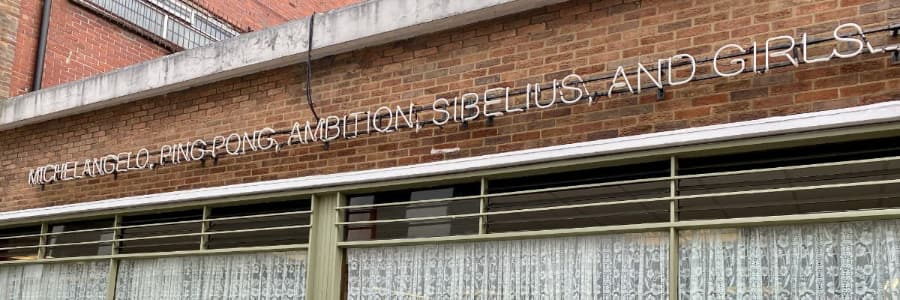
Kardomah
When I visit my father, I always love to walk around Swansea and get an early morning coffee. We used to come as a family on Saturday mornings when I was growing up, so with my existing coffee and writing habit it’s a double comfort. It also gets me out of the house, which is frozen in amber and not somewhere I want to hang around while my dad gets up. This time I walked past the Kardomah, a Swansea landmark famous for its links with Dylan Thomas and his ’Kardomah Gang’, a group of intellectuals who met there in the 1930s. I wish the neon in the photograph was lit. It’s a lovely list.
The summer seems to be accelerating beneath my feet. Being in Port Talbot always puts me in a reflective mood. I brought with me James Hollis’s amazing book, Finding Meaning in the Second Half of Life, as well as the rather more prosaic Essentialism, by Greg McKeown. I’ve read both before, but they jumped into my hands from the bookshelf as I was packing. Hollis’s masterwork is a Jungian take on how to engage with yourself to live a meaningful life. That ‘yourself’ is the key to the book—the psyche, the soul, the unconscious, however you label it, it’s the part of us that knows what we need to heal,flourish and grow, but as adults we’re often conditioned to ignore.
Right now, I’m questioning my excitement over my new job in September, and my guilt at not wanting to write. It should be the other way around. I’ve always put writing first and felt guilty at not being as into my day job. There is some sort of correction going on, which is interesting and a bit scary. Anyway, the book is a reminder of what’s at play under the surface, and perhaps I can use what I learn in my writing.
Essentialism is much lighter fayre, a reminder to say no to most things and yes to very few. Where Hollis advocates conversations with the psyche, in whatever way we can, to find the things we truly want to do, McKeown is saying to go all in on one thing instead of diffusing energy into many things. That’s the same advice, but without the depth. I can see now why I brought them.
I’m sick of beating myself up over not writing. It’s exhausting and ridiculous. What is meaningful and essential to me this summer is to be healthier, be fully present with my family, do a good job of moving jobs, enjoy our first family holiday abroad, and keep my literary life ticking over. These are my current priorities. Perhaps I need to switch some of them around, and perhaps I don’t, but this is where I am.
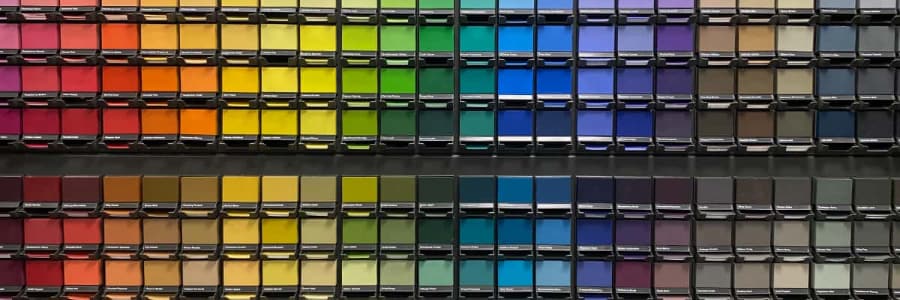
Trust your enthusiasms
It’s been a highly unusual period for me since pausing the podcast. After fourteen years in my day job, I am finally leaving. My new role is still coding, but instead of being in Higher Education I’m going to be a consultant with a subsidiary of a global corporation. The PRIVATE SECTOR. It’s taken a lot of effort to make the change–I hadn’t had a job interview in a long time. I’m amazed at what I’ve done. It’s exciting.
I’m also writing in the mornings. The novel continues to come into focus, and I wonder if that’s because I’m taking charge of my career too. I’ve been guilty in the past of compartmentalising the energies in my life, but it’s all one energy source, and I wonder how much I’ve been holding my writing back by letting myself stay in one job too long. I’ve always been afraid that a new job would distract from writing, but if you’re not writing anyway…
I haven’t had time to think about the podcast and what I might do with it next. Someone tweeted the other day that podcasts are easy because you just talk, you don’t have to write, and maybe it was an avoidance move, but I definitely learned a lot.
I’m going to continue to trust my enthusiasms. I hope your creativity is in full flow too.

ChillerCon UK 2022
ChillerCon UK 2022 emerged from the ashes of the Covid-struck StokerCon 2020, miraculously held together by the heroic organisers who had to deal with cancelled hotel rooms, refunds, and much else I’ll never know about. The original idea when I bought the ticket in 2019 was to find my tribe and network with other writers off the back of The Complex being published. I wasn’t sure I wanted to still go. Almost three years on, since Salt are not a genre-specific publisher, and The Complex didn’t get much attention in the media, I knew nobody would know anything about me, and as much as I love horror films and weird fiction, I don’t read any contemporary horror. On top of that, I’d lost those all-important in-person social muscles, and Covid was still very much around.
Getting the virus in April made me more open to the idea, and realising that my friend Tim Major was going to be there too, I committed to it–and I’m so glad that I did.
The Royal Hotel was an amazing venue with the perfect atmosphere, right down to the closed spa in the basement from which I’m sure sometimes I could hear screams. I arrived a little late on the Thursday because of train delays, then threw myself into the panels, soaking up panellists’ thoughts on comedy in horror, podcasting, the nature of folk horror and horror science-fiction. When the evening dinner break arrived, conference newbie that I was, I thought people would eat together, and I cast awkwardly about for someone to go to dinner with. I think one guy thought I was making a pass at him and ran away (wasn’t I, in a way?), and another just looked pityingly at me, so I ate the very disappointing fish-and-chips-of-shame on the beach with the gulls. As an introvert, I can turn charm on in short bursts, but I get quickly overwhelmed, and looking back I wonder if I was a tad manic. Desperation is not attractive.
I stayed in a hotel in the Scarborough valley beneath the main bridge Thursday night. The stairway walls were unexpectedly covered in framed old film posters, like Tombstone, Smokey and the Bandit, and The Way West. It was almost classy. I loved it. My top floor room was quiet and clean, the bed was comfortable, the breakfast was fine, and I slept well. I would find out the next day from guests at the main hotel that sleep was in rare supply.
Anyway, on Friday I launched myself back into the fray, sleep and a greasy breakfast giving me courage to have another shot at socialising with the tribe I was becoming increasingly eager to join, but first there were more panels: on horror anthologies, having an online presence, and the role of reviewers. Having no idea what a Kaffeeklatch was, I’d bought a fiver ticket with a podcasting hero of mine, Mick Garris, and hilariously it was just Mick Garris, the lovely Steven Volk, me, and a Spanish Mick Garris super-fan (if you’re reading this, we didn’t introduce ourselves, you were fab), drinking tea and chatting amiably about horror, before all getting lost on the mysterious fourth floor of the Royal Hotel that can only be reached by a single lift. That was an hour I’ll never forget.
Tim arrived on Friday and, determined not to eat dinner with the seagulls again, I got him to introduce me to a few people. We ended up in a lovely crew of six at Thai Orchid, a splendid spot a couple of streets from the Royal Hotel. It was so nice to feel normal and social. Even if you are fundamentally a nice person with decent social skills, conferences are a bit of a lottery in terms of who you end up spending your time with, and whether you make new friends. This time I was blessed.
Friday night I was in a different hotel, which had a wonky bed, creaking floorboards (and creaking wallboards, which was new to me), and a man next door who spent the whole night hacking up a lung (I wonder if he managed it?). That left me going into Saturday a little frayed, and it turned out most people had been sleep-deprived for various reasons–gulls, a nightclub next door, fighting outside, etc. I didn’t have time to feel sorry for myself, because I had a two-hour masterclass with another hero of mine, film producer Jennifer Handorf, about film-making. What a joy that was. It almost made me want to make a film and leave the novel-writing behind, and maybe I’ll write a screenplay from The Complex or Signal in due course. I’m ruling nothing out. Jen was an inspiration.
After the adrenaline rush of a film-making masterclass, the come down was severe. I decided I couldn’t face another night in the grim hotel, and there were rumours of a rail strike the next day, so I headed home. Frankly, I was burnt out. After getting used to the delicacies of working from home, with next to not physical proximity to people, ChillerCon fried my social synapses. There probably won’t be another, but my appetite is wetted for writer conferences as a concept. It would be even nicer to be able to go as a writer that people know about. That’s a goal for 2023.
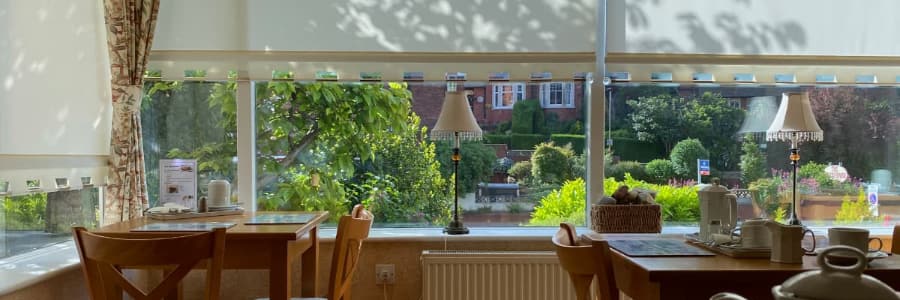
Kindness in retrospect
I’ve always thought that living life well was more important than writing, and typing that aloud I’m not sure if that sounds obvious, wise or stupid. I know writing regularly is part of the life I want, but often life events sweep away my desire to write, and trying to write under those circumstances results in needless suffering. My internal critic says I’m being lazy, or disorganised, or just not up to the job, but kinder voices reassure me that there is a season for all things.
My day job has been particularly tricky the last twelve months, a pressure built inside me to make a change, and to do a good job of that change required effort. It wasn’t planned in much detail, and it’s only clear what was happening looking back. The next bit of work is managing the transition from here to there. I’m being deliberately vague. I couldn’t write at the same time, that’s what I’m saying. It’s kindness in retrospect.
Last weekend I went to Chillercon, Scarborough, and I met lots of lovely people, which led to me buying even more books. More on that soon.
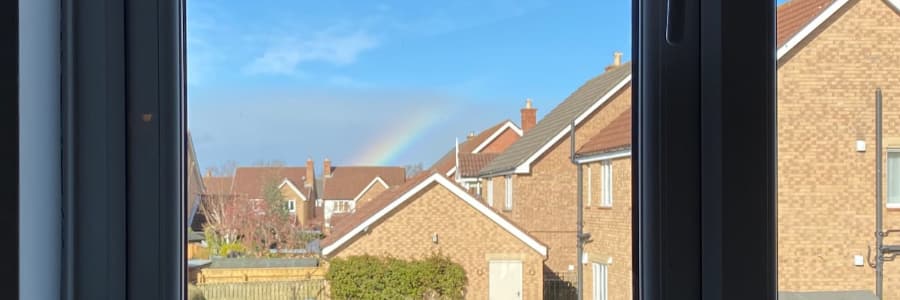
An oblique strategy
I’m in Wales with my dad today, Good Friday, taking him for a Covid test before he has a cataract operation Monday. He’s been waiting six years to get both eyes treated, and he’s worried something will happen to cancel it, which has happened several times already. I head home tomorrow and my sister takes over the ferrying around. I’ve had Covid this month, and my wife still has it, so I could do with a couple of days at home to settle my mind and reconnect with myself before I start back at work on Tuesday.
Sunday will be my tenth podcast on Patreon, so that’s ten weeks of learning how to speak clearly, record my voice, listen to my voice (which was uncomfortable to begin with), and think on my feet in front of a microphone. Of course, it’s just me, I’m not interviewing someone or in conversation, which is something else again, but I’ve learned a new skill. Part of the point was to offer something personal to patrons. Patreon doesn’t provide analytics, but from the lack of feedback, I suspect hardly anyone listens to it. Ten is a nice round number, so I’m wondering if that’s a good place to pause and think of something new to put on Patreon, or at least plot a new course for the podcast.
I’m using Twitter less, partly because I need to avoid the news since Russia started the war with Ukraine, and partly so that I could make more time to read books to talk about on the podcast. It’s an oblique strategy to get me reading, and from there to get me writing. My online activity starves me of literature while stuffing me full of semi-connections with distant people. All of this makes me think about the relationships between a writer, readers and other writers. The bottom line is, I need more in-person activity.
(I put up a Twitter poll about making a public podcast and amusingly half of the respondents said there were already enough podcasts. I don’t know why I asked, because if I do it, it will be for myself, not other people. Vanity, I suppose. Or I was fishing for compliments. Either way, it was a lesson in humility.)
I’m looking forward to the weather getting warmer. There’s a lot I want to do, and sunshine and warmth helps. Now that I’ve had Covid, a weight has lifted that I didn’t know was there. The monster wasn’t as fierce in my body as I’d feared, and I have at least a season’s grace. I’m excited for the spring into summer.
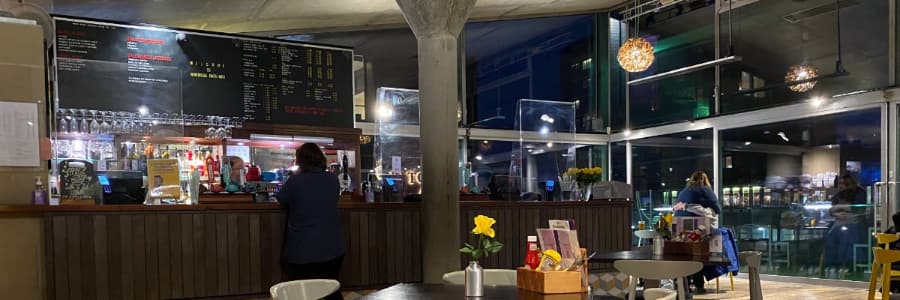
Patreon: one month in
It’s been a month since I set up a Patreon creator account and started posting a few things only for patrons, and it feels like a good time to stop and take stock. The initial idea was to explore publishing short stories behind a paywall, to try to motivate myself to finish smaller pieces because there was an expectation, and to put a symbolic stake in the ground that said, I want to have some control over when I publish my work, and, no matter how little it might be, I want to be paid for it. Alongside that statement of confidence, I was full of self-doubt, and deep down I knew there was no way I could publish short stories that often and still finish the novel.
I wasn’t planning on starting a podcast, but that’s what I’ve done. I found YouTube videos about getting started, then spent a hundred quid on a microphone, which is a bit mad for a gut feeling, but really a microphone is the only expense in doing it, and I didn’t want to have to listen to my own voice at all, never mind in terrible quality audio. The first recording was a test, just thirty seconds, to prove I could go from talking into a mic to seeing something appear on the web. I published three more episodes (episodes!) of the show (the show!) in February, trying something new each time and building confidence.
I’m still not sure what its purpose is, but if I had to say right now, it could be a meta podcast about my creative life for people who want to support me and my work, and I can imagine a public parallel podcast in the near future that is more formal, and perhaps linked with my next book.
All of that is very different to the initial idea of publishing short stories. I have a handful of glorious patrons, most of whom have implied that they are supporting my work, whether for one month or many more, and not necessarily expecting anything in return. Capitalism trains us to think in transactions, to get something for our money, but a patron isn’t necessarily thinking that way, which is a beautiful reminder of the human desire to connect and help others, independent of the market.
Having said that, I do want to give people who support me something back, and the private podcast is the first thing. I’m now thinking what else I can do. I can certainly put them in the Acknowledgements of the next book, and no doubt more things will come to mind over the spring and summer. I put too much pressure on myself to finish things, substantial things, not just tweets and blog posts, and that severely hampers my creative energy. Working full-time makes time feel scarce, but the kids are getting older, the pandemic is easing, and I no longer commute. I can feel the writing knot inside me (dont call it writers block dont call it writers block dont call it writers block) loosening. I’m excited to find out what happens next.
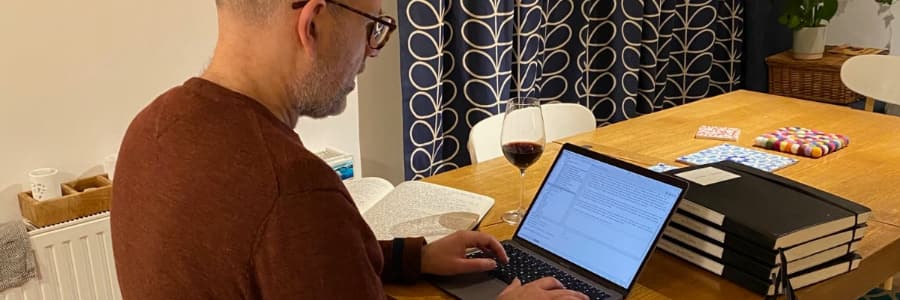
Writing short stories on Patreon
I’m thinking about what people might like to see in a writer’s Patreon, and what would be exciting for me to publish. My favourite Patreon creators are podcasters, and of course they give access to extra podcast episodes. Creating a podcast might be fun, but I am primarily a writer, so my crazy idea (crazy for me, knowing how I usually write stories, i.e. slowly) is to publish a short story a month for the rest of 2022 on Patreon. These stories do not exist yet, so it’s a commitment to publish something once a month that is edited and complete, not just fragments. From nothing to ten stories in ten months.
A book of, say, a dozen short stories might cost a tenner, of which the author would get, after all the other costs are taken out, fifty pence. If it sells a thousand copies, which would be really good going, that’s £500 for more than a year’s work. There is also money from library loans, which could be another £50/year. I received half that for The Complex in 2021.
There is no money in the publishing industry for the vast majority of writers. There is barely enough money for independent publishers to stay in business. Looking at it with a couple of years’ experience now, the model is broken for all but the biggest publishers and the authors those publishers put their marketing muscle behind. There are so many people writing these days, and there is so much ‘content’ (bleurgh), that authors are on their own, in marketing terms. Now I can see why some writers self-publish. Before Salt picked up The Complex, I was sceptical. If anyone can publish, how can I find what’s good? Who are the gatekeepers of quality that I trust?
I suppose I’m talking around the fact that publishing short stories on Patreon is a form of self-publishing, and if I’m going to try this, I want to be clear with myself and whoever subscribes about what I’m aiming for. I need to think carefully about that.
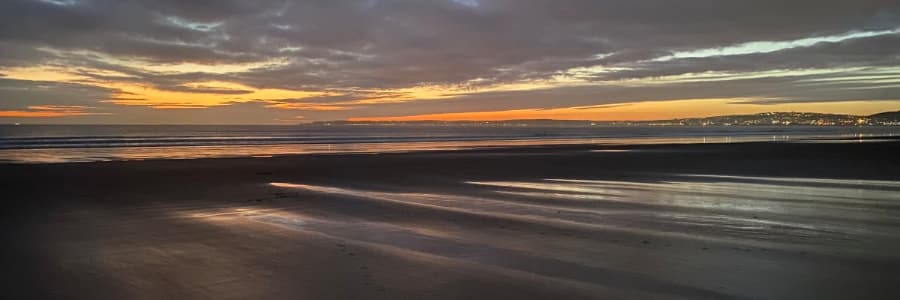
Films, dreams, fiction and writing
I’ve come to think that films are intrinsically linked to my writing practice, but I’m worried my film-watching habit is more of a distraction than an inspiration. Films are like dreams, and the good ones are endlessly interpretable vessels for the unconscious mind. How could that not be useful to a writer? Or am I kidding myself?
What I really want is to discover films and fiction that directly feed into writing my work-in-progress. When I pick a film, sometimes it’s based on an unconscious desire or feeling that needs surfacing, and often it’s linked to the last thing I watched or read, perhaps an actor, or a theme. Even bad films have something for me, a single image or a line of dialogue. If I paid more attention, maybe I could use films more actively in my writing. The scenes I write look like a film in my imagination. Well, rehearsals on a film set, let’s say, with a sparse, mostly improvised script, a confused director, and infinite film for lots and lots of takes. Sometimes details from films I’ve seen will slip in, and an unseen costume designer will amend an item of clothing, or a casting director will change an actor’s face. Dreams definitely get added too. Dreams are like surreal short films loaded with my deepest desires and fears.
What I’m saying is, I want to better understand how films, dreams, fiction and writing are connected. I hope I can make watching films a more conscious part of my writing practice, but perhaps my film habit will turn out to be more of a drag than inspiration. I don’t know. I want to experiment.
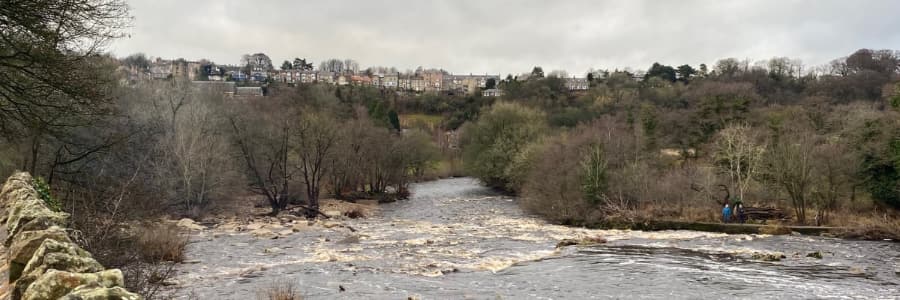
Farewell, 2021
As 2022 comes into view upriver, the final days of 2021 flow past, and I couldn’t pass up the chance to reflect on what I’ve read, watched and written this year. (Okay, reflect is a strong word, but it’s been a difficult Christmas, and I’m very tired.)
In books new to me, I opened the year with Ali Smith’s wonderful Autumn, and if my favourite books are like stepping stones on this river metaphor I’m in danger of drowning in, from there I went to An Awfully Big Adventure (Beryl Bainbridge), The Cost of Living (Deborah Levy), Clothes, Clothes, Clothes… (Viv Albertine), Redhead by the Side of the Road (Anne Tyler), Boy Parts (Eliza Clark), Hotel du Lac (Anita Brookner), The Shooting Party (Isabel Colegate), and The Glass Hotel (Emily St John Mandel).
I’m not much of a re-reader, but I got caught in some reading ruts this year, and I found writerly solace in returning to Joyland (Stephen King), Annihilation (Jeff Vandermeer), and Tinderbox (Megan Dunn).
Films. Oh-so-many films. Out of [165 films watched in 2021(https://letterboxd.com/michaelwalters/films/diary/), I gave 39 of them a rating of 5/5, and of those, my top 10 favourite discoveries, in chronological order of being made, are:
- Blow-up (1966)
- Performance (1970)
- Klute (1971)
- The Long Goodbye (1973)
- Blue Velvet (1986)
- Lost Highway (1997)
- Triangle (2009)
- Riders of Justice (2020)
- Pig (2021)
- Dune (2021)
And because this image blows my mind, here are all 165 from Letterboxd, in reverse order of watching:
Finally, in my writing, I started the year with 25,000 words of a new novel, and I end the year with 22,000 words of a new novel. But I’ve already written enough about that.
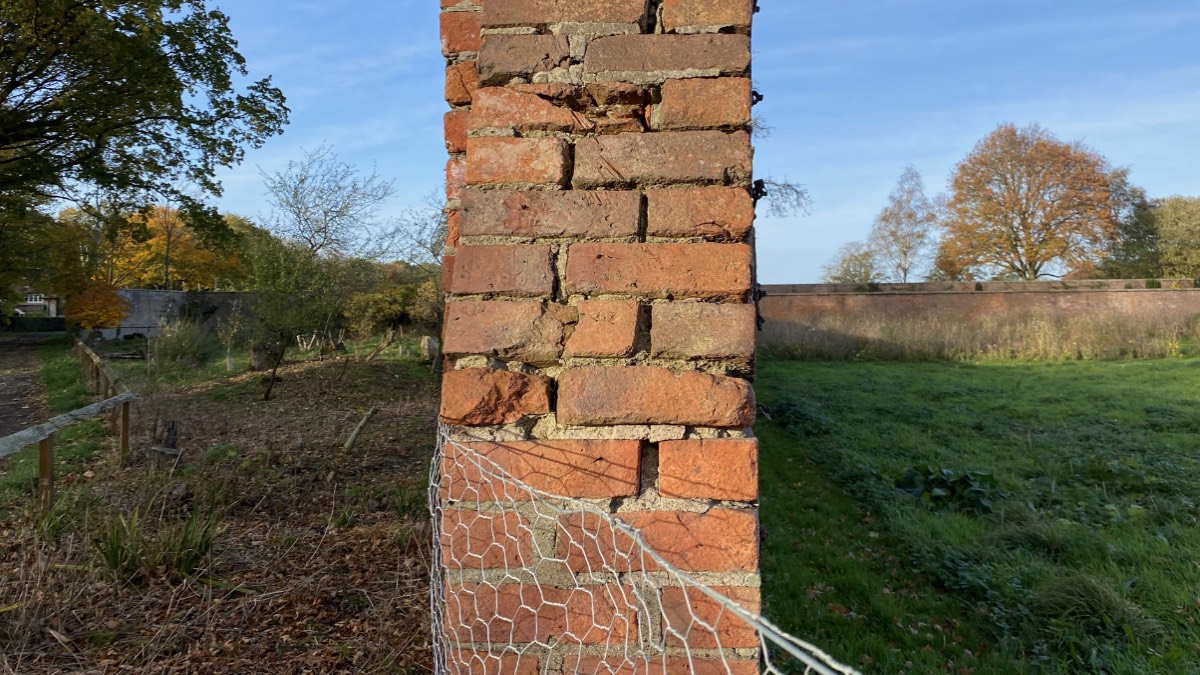
The great adjustment
Between January 2018 and December 2021, I watched 569 films. I know this because I track the films I watch on Letterboxd. That’s a lot of films. Not as many as more serious cinephiles, but a tremendous amount for someone who actually wants to be a novelist and not a filmmaker. I‘ve watched 157 films this year so far, which is on average fifty minutes a day, the length of a session of psychotherapy.
There was a gradual increase—2015 (11), 2016 (34), 2017 (61), 2018 (140)—and it’s linked to submitting my novel-as-dissertation in September 2017. After that, I needed to get away from writing, so I discovered horror film podcasts, and started a completely different adventure. I told myself that it was useful, which it was, to understand how the great (and not-so-great) films worked, thinking about story, narrative, dialogue, character arcs, all that good stuff, but looking back, I should have disengaged earlier and brought that knowledge back to my writing.
When the pandemic hit, and I was stuck working at home in a new job, with a constant newsfeed of virus fears, Trump and Brexit, I doubled down on films as a coping mechanism. (I know I keep going over this, but I think a lot of us are going to be dealing with a form of PTSD around the pandemic experience for some time to come.) I stopped reading for pleasure, partly because I lost my commute, and partly because I could feel a pressure building in me to be writing the next thing. I could watch a whole film in a ninety-minute evening slot and tick it off a list, but a novel was a longer undertaking, over several days, taking up valuable headspace that I could be using for writing. I would pick up a book, and quickly have to fight the urge to scan it, study it, and jump to the end. This was reading without engagement. I was still reading novels, but in a begrudging, desperate, manic, miserable way.
Films made me feel better in the world. Books made me feel worse. Films immerse you through image, sound, story and the fact you have to watch it for as long as it lasts, like a fairground ride. This intensifies the experience and heightens emotions, so it is closer to real life. I love that. But reflecting on a film is hard while you are watching it because it is still happening to you. It’s quite an invasive experience. It can feel overwhelming.
Books, on the other hand, give the control to the reader. A reader can be distracted by a knock at the door, read sentences a second or third time, look out of the window and daydream, recall a memory, read faster or slower, skip over a stressful scene, or even read the ending first. They can make notes in the margins and write in a notebook. You are immersed in the world of a book, but the book doesn’t demand your undivided attention. Books are a very forgiving companion. (I heartily recommend the chapter on reading in The Art of Rest, by Claudia Hammond.)
Here’s the heart of the matter for me: I can’t write without reading. To write, I need the written word as nourishment, and for me to feel nourished, I need to read slowly, with curiosity and my mind engaged.
This realisation, which is completely obvious on the surface, arrived because, in thinking about 2021 and what I might do differently in 2022, I looked back at the books I had read, and the films I had watched, and knew there needed to be an adjustment. I’m out of balance in how I get my story fix.
After four years of my adventure in films, I’m starting the great adjustment—fewer films, more books, and getting reacquainted with the gentle art of reading.